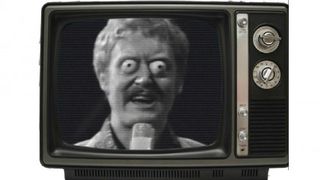What the Time Warner-Charter merger means for you
The rise of the (other) mega cable company in America

Well folks, it's happened. Charter owns Time Warner Cable, as well as Bright House, thanks to a merger worth a whopping $79 billion. Yes, that's billion with a "b".
What does that mean? For starters, it means that Charter is now one of the largest TV and internet service providers in the US, going up against the likes of AT&T, Verizon and Comcast.
This merger marks the rise of the mega cable company in the US – headed by Charter and Comcast. I know what you're thinking: "That's just business – I want to know what the merger means for me!"
I thought you'd never ask. So, here's why you should care that two mega cable companies now all but rule the market, and how this one in particular affects you.
Does this merger mean I'll get more/better service?
In all likelihood, no. Charter, Time Warner, and Bright House have almost no overlap in terms of their coverage, so prices aren't going to go down because of this merger. If anything, the merger will help Charter raise prices, although the company assures customers that no such thing will happen. This coming from a company that sponsored so-called official surveys touting how helpful the merger would be for customers.
In all likelihood, no.
In reassuring customers of the merger, Charter said that the merger would allow it to focus on offering on developing faster Internet speeds and offering better products. While that may be partly true, you should really expect more of the same from the companies, at least when it comes to Internet. When it comes to things like video streaming, you should expect a few new things from the company, given that the likes of Comcast are pouring money into video streaming.
Get daily insight, inspiration and deals in your inbox
Sign up for breaking news, reviews, opinion, top tech deals, and more.
All this said, at the very least the New York Attorney General is demanding for Charter to come in and clean up Time Warner's act.

Is this just going to create another Comcast?
You may or may not remember, but a few years back a merger of Comcast and Time Warner was proposed, long before the merger of Charter and Time Warner was thought of. That merger failed mostly because it would lead to a monopoly in most major US markets. Ironically enough, the merger of Charter, Time Warner and Bright House has resulted in another mega-company that really only Comcast can go up against.
Consumer advocates aren't too happy about this – it means even less competition in the broadband market, and that gives Charter leverage to charge premium rates for content providers that want to reach their audiences through the Charter network.
In other words, cable companies sometimes try to put the squeeze on online video providers with clauses in cable TV agreements with programmers. Charter has been accused of these deals in the past, as has Time Warner – perhaps even more so.
"TWC has been the most aggressive MVPD (multichannel video programming distributor) in the industry in securing Alternative Distribution Means (ADM) clauses in its contracts with programmers that either prevent the programmer from distributing its content to OVDs (online video distributors) or place certain restrictions on such online distribution," said the Department of Justice in a statement.
After the seven years are up, Charter could have the power to charge those network access fees again.
Good news is that, under the Federal Communications Commission's (FCC) rules, that kind of business will be illegal for the newly formed company for the next seven years. Still, looking at the big picture, the future is bleak for internet in America.
After the seven years are up, Charter could have the power to charge those network access fees again, something that could eventually lead to hiked subscription rates for internet services, like Netflix, which has had to pay similar fees to the likes of Verizon, Comcast and more.
Don't get too excited about better customer service, either
Time Warner has been notoriously lacking when it comes to customer service, especially in big markets, like Los Angeles and New York City. Between billing issues, massive lines at Time Warner offices and technological problems, Time Warner isn't America's favorite company.
Unfortunately, you shouldn't expect this to change too much in the near future – Time Warner may be horribly rated when it comes to customer service, but it turns out Charter is actually worse.

According to the American Customer Satisfaction Index, Time Warner scored a measly 58 out of 100 in customer satisfaction for 2016, while Charter took things a notch down to 57. Comcast was the worst of the bunch, sitting at 56. So, while things should stay better than Comcast, that hardly says much.
Having said that, Bright House has been quite highly rated in terms of customer service. So, on the off chance that Charter takes a page out of the Bright House customer service book, there may be hope that horrible reputation of Charter and Time warner improves. Unfortunately, it's more likely that the cable guy will continue to show up late and that your internet service will continue to be less than advertised.
Why are mega cable companies such a big deal?
First off, mega cable companies in and of themselves aren't, really. The issue is this: these mega companies largely exist in their own market. That is, Comcast doesn't serve customers where Charter does, and vice versa.
There's an oligopoly now at play. Sure, that might not be such a problem if they existed in the same markets, as it could drive competition in both price and customer service, but they simply don't.
It would be nice to see Comcast and Charter competing in the same markets, creating a kind of mega-cable war ... but, the likelihood of that happening is slim.
Even companies like Verizon and AT&T largely exist in their own markets. There is some overlap, to be sure, but take a look at a Verizon FiOS coverage map and you'll see that the mega companies have nothing to worry about.
In the end, it's hard to predict exactly what will happen. Eventually, it would be nice to see Comcast and Charter competing in the same markets, creating a kind of mega-cable war, if you will. But, the likelihood of that happening, at least in the near future, is slim.

You might want to sit down for this one
The reality is this: media and broadband companies – which are more and more becoming one in the same – are going to continue to consolidate in the future. They want a monopoly.
Part of why the FCC exists is to manage this consolidation and ensure that monopolies don't happen, something that it doesn't seem to be doing too well at. Thanks, lobbyists.
Having said that, it's nice to see that the commission has imposed restrictions on the merger. If imposed correctly, these restrictions should help ensure that some of the problems associated with a massive merger like this don't exist.
- UHD Premium: one standard to rule them all
Christian is a writer who's covered technology for many years, for sites including Tom's Guide, Android Central, iMore, CNN, Business Insider and BGR, as well as TechRadar.
Most Popular

